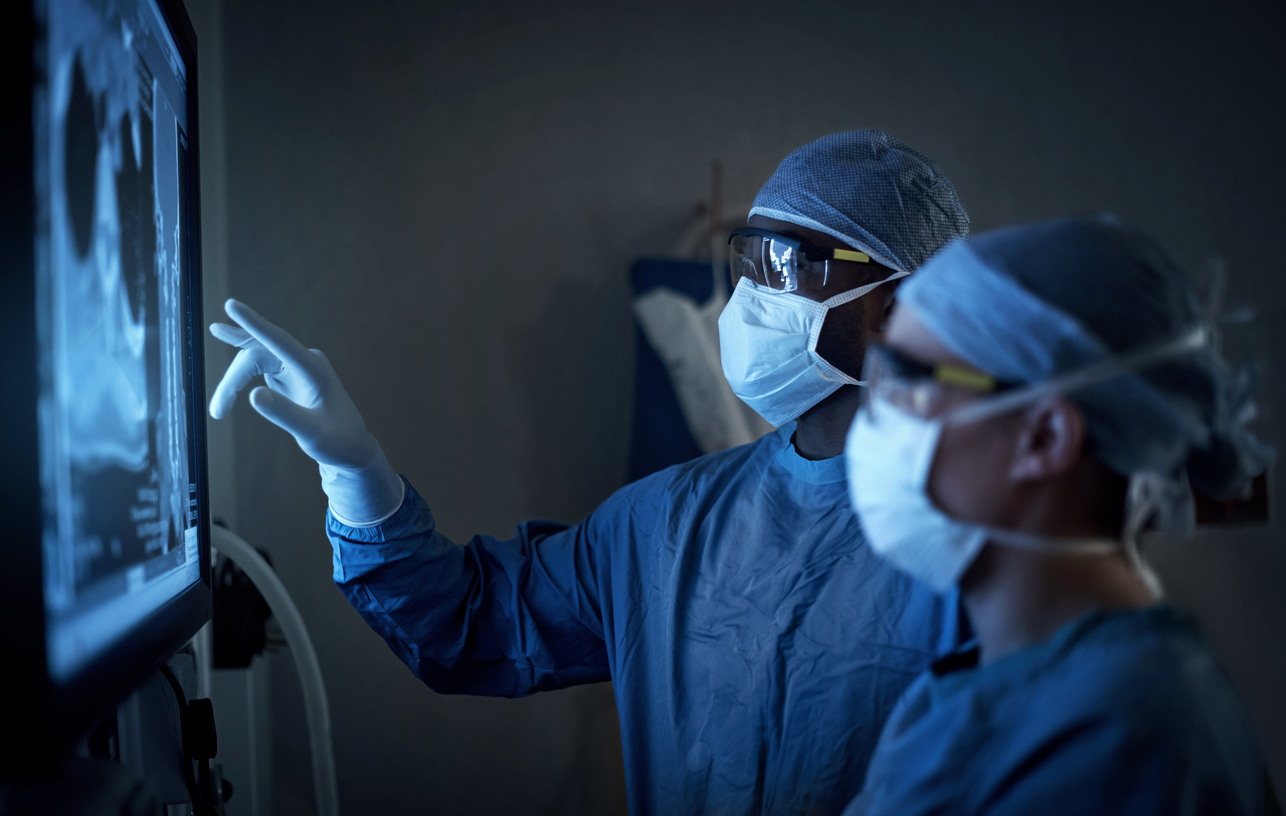
Pediatric surgery is defined by the American Board of Surgery as “the diagnostic, operative and postoperative surgical care for children with congenital and acquired anomalies and diseases, be they developmental, inflammatory, neoplastic or traumatic.”1 The ages of pediatric patients range from in utero to young adulthood, and some patients need to be following through their transition to adult surgeons and clinicians.1 Surgery, chronic illness and hospitalization can be traumatic to children and their parents.2 Children are particularly vulnerable and may have difficulty understanding and managing such experiences.2 This, combined with the physical toll that surgery places on a child, can lead to long-term somatic and psychological issues.3 Recent research has focused on the effects of general anesthesia on a child’s developing brain, specifically in regard to attention-deficit/hyperactivity disorder (ADHD).4 Anesthesia providers should be familiar with the signs of ADHD, the effects of general anesthesia on children and recent research on pediatric general anesthesia and ADHD.
Evidently, many childhood factors can contribute to children developing psychiatric disorders such as ADHD. For example, a study by Ari et al. found that 10.39 percent of children who were hospitalized in a pediatric surgical ward showed signs of post-traumatic stress disorder (PTSD) three to five months after hospitalization.5 Meentken et al.’s review found PTSD prevalence ranges between 12 and 31 percent in children and adolescents who underwent several surgeries for congenital heart defects.6 Some research suggests that mental and developmental disorders may be related to exposure to general anesthesia at a young age. According to Schneuer et al.’s study of 211,978 children in Australia, children exposed to general anesthesia before four years of age had poorer development at school entry and school performance.7 Meanwhile, Warner et al.’s study did not find deficits in general intelligence linked to anesthesia exposure before three years of age.8 However, they found that multiple exposures to general anesthesia were associated with neuropsychological changes causing behavioral and learning difficulties.8 Thus, research tentatively suggests that early exposures to surgery and general anesthesia may have a causative relationship with psychological and neurological difficulties.
ADHD is a psychiatric disorder marked by difficulty paying attention, hyperactivity and acting without thinking that get in the way of functioning or development.9 A person with ADHD may make frequent errors in schoolwork, have problems sustaining attention or listening, fail to follow through on instructions or finish tasks, find organization difficult, lose things and become easily distracted.9 Although the signs and symptoms of ADHD begin in childhood, the disorder can continue throughout adolescence and adulthood.9 Risk factors for ADHD include having a family member with ADHD or another mental disorder; exposure to environmental toxins, such as lead; maternal drug use, alcohol use or smoking during pregnancy; or premature birth.10 ADHD can be a difficult condition for children as well as their parents.
Several studies have focused on general anesthesia’s relationship with ADHD, as it is a common learning and behavioral disorder. A study by Ing et al. found that children who undergo minor surgery requiring anesthesia under age five have a small increased risk of mental disorder, developmental delay and ADHD diagnoses.11 Similarly, Tsai et al. found that children with multiple or greater than three hours exposure to general anesthesia before three years of age had an increased likelihood of a later ADHD diagnosis.12 Sprung et al.’s study also showed that children repeatedly exposed to general anesthesia before two years of age were at risk for later development of ADHD.13 In their review, Xu et al. summarize molecular and neural mechanisms and animal studies that show how general anesthesia may be causally linked to ADHD.14 However, many researchers remain skeptical of these results, and almost all stress that a causal link cannot be made conclusively. Though Hu et al. found that multiple pediatric exposures to general anesthesia were associated with increased frequency of learning disabilities and ADHD, the authors emphasize that these data do not show whether anesthesia is the causative agent.15 Efron et al. warn that suggesting anesthesia causes ADHD is a large, unfounded step that could generate unnecessary public panic.4 The authors state that evidence is weak for many environmental factors that supposedly cause ADHD, including general anesthesia.4 There is still considerable debate on general anesthesia’s effects on the growing brain, and higher-powered studies are needed to make proper conclusion.16
Surgery can be psychologically and physically stressful for children and their families. Anesthesia providers should have knowledge of the effects of general anesthesia in children, the signs of ADHD in particular and the possible relationship between general anesthesia exposure and ADHD. Given that the link between pediatric general anesthesia and later development of ADHD is still unclear, future studies should reduce confounding factors and take a longitudinal approach.
- The American Board of Surgery. Specialty of Pediatric Surgery Defined. Pediatric Surgery May 2019; http://www.absurgery.org/default.jsp?aboutpediatricsurgerydefined.
- Association of Child Life Professionals. The Case for Child Life. The Child Life Profession 2018; https://www.childlife.org/the-child-life-profession/the-case-for-child-life.
- Winthrop AL. Health-related quality of life after pediatric trauma. Current Opinion in Pediatrics. 2010;22(3):346–351.
- Efron D, Vutskits L, Davidson AJ. Can We Really Suggest that Anesthesia Might Cause Attention-deficit/Hyperactivity Disorder? Anesthesiology: The Journal of the American Society of Anesthesiologists. 2017;127(2):209–211.
- Ari AB, Peri T, Margalit D, Galili-Weisstub E, Udassin R, Benarroch F. Surgical procedures and pediatric medical traumatic stress (PMTS) syndrome: Assessment and future directions. Journal of Pediatric Surgery. 2018;53(8):1526–1531.
- Meentken MG, van Beynum IM, Legerstee JS, Helbing WA, Utens EMWJ. Medically Related Post-traumatic Stress in Children and Adolescents with Congenital Heart Defects. Frontiers in Pediatrics. 2017;5:20.
- Schneuer FJ, Bentley JP, Davidson AJ, et al. The impact of general anesthesia on child development and school performance: A population-based study. Paediatric Anaesthesia. 2018;28(6):528–536.
- Warner DO, Zaccariello MJ, Katusic SK, et al. Neuropsychological and Behavioral Outcomes after Exposure of Young Children to Procedures Requiring General Anesthesia: The Mayo Anesthesia Safety in Kids (MASK) Study. Anesthesiology. 2018;129(1):89–105.
- National Institute of Mental Health. Attention-Deficit/Hyperactivity Disorder (ADHD): The Basics. Brochures and Fact Sheets 2016; https://www.nimh.nih.gov/health/publications/attention-deficit-hyperactivity-disorder-adhd-the-basics/index.shtml.
- Mayo Clinic. Attention-deficit/hyperactivity disorder (ADHD) in children. Diseases & Conditions June 25, 2019; https://www.mayoclinic.org/diseases-conditions/adhd/symptoms-causes/syc-20350889.
- Ing C, Sun M, Olfson M, et al. Age at Exposure to Surgery and Anesthesia in Children and Association With Mental Disorder Diagnosis. Anesthesia and Analgesia. 2017;125(6):1988–1998.
- Tsai C-J, Lee CT-C, Liang SH-Y, Tsai P-J, Chen VC-H, Gossop M. Risk of ADHD After Multiple Exposures to General Anesthesia: A Nationwide Retrospective Cohort Study. Journal of Attention Disorders. 2015;22(3):229–239.
- Sprung J, Flick RP, Katusic SK, et al. Attention-deficit/hyperactivity disorder after early exposure to procedures requiring general anesthesia. Mayo Clinic Proceedings. 2012;87(2):120–129.
- Xu L, Hu Y, Huang L, et al. The association between attention deficit hyperactivity disorder and general anaesthesia: A narrative review. Anaesthesia. 2019;74(1):57–63.
- Hu D, Flick RP, Zaccariello MJ, et al. Association between Exposure of Young Children to Procedures Requiring General Anesthesia and Learning and Behavioral Outcomes in a Population-based Birth Cohort. Anesthesiology. 2017;127(2):227–240.
- Disma N, O’Leary JD, Loepke AW, et al. Anesthesia and the developing brain: A way forward for laboratory and clinical research. Pediatric Anesthesia. 2018;28(9):758–763.

